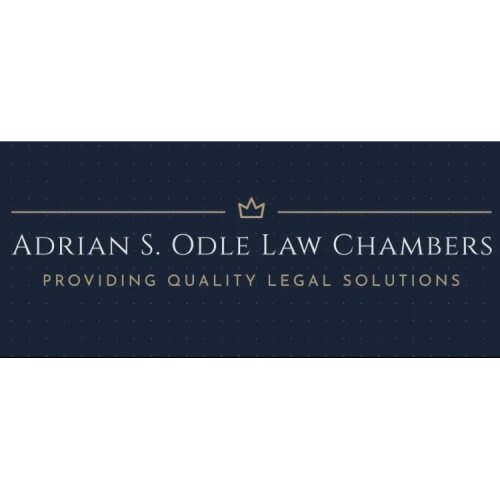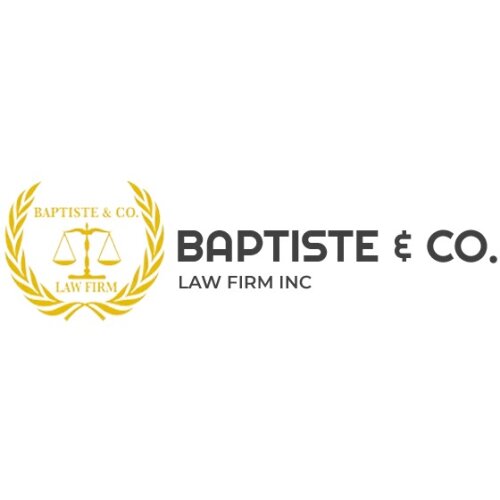Best Tax Increment Financing Lawyers in Saint Vincent and the Grenadines
Share your needs with us, get contacted by law firms.
Free. Takes 2 min.
Or refine your search by selecting a city:
List of the best lawyers in Saint Vincent and the Grenadines
About Tax Increment Financing Law in Saint Vincent and the Grenadines
Tax Increment Financing (TIF) is a financial mechanism primarily used by local governments to foster economic development and infrastructure improvements within specific areas. In Saint Vincent and the Grenadines, TIF is utilized as a strategic tool to stimulate private investment and improve underdeveloped regions by leveraging the future increase in property tax revenues resulting from such development. This financing method helps in addressing budget constraints, by capturing the incremental increase in property taxes to finance public projects that are expected to increase the economic viability of a community.
Why You May Need a Lawyer
Individuals or businesses considering engaging in or affected by TIF projects in Saint Vincent and the Grenadines might require legal assistance in several situations:
- Development Planning: Understanding the legal requirements and compliance issues surrounding proposed TIF projects.
- Contract Negotiations: Crafting or reviewing development agreements to ensure favorable terms and mitigate risks.
- Dispute Resolution: Addressing disagreements or litigations related to TIF agreements or developments.
- Investor Guidance: Advising potential investors on the legal and financial implications of engaging in TIF zones.
- Compliance with Local Laws: Ensuring projects comply with local zoning, environmental, and financial regulations.
Local Laws Overview
The legal framework governing TIF in Saint Vincent and the Grenadines is designed to promote sustainable economic development while ensuring fiscal responsibility. Key legal aspects include:
- Establishment of TIF Districts: Local municipalities have the authority to designate specific areas as TIF districts, often requiring feasibility studies and public consultations.
- Financing and Bonds: The use of expected tax increment revenues as collateral for bonds, which are used to fund public infrastructure projects.
- Public Participation and Transparency: Ensuring local communities are informed and have a voice in TIF planning through public hearings and transparent reporting.
- Impact Assessments: Legal requirements for environmental and economic impact assessments prior to the approval of TIF projects.
Frequently Asked Questions
1. What is Tax Increment Financing?
Tax Increment Financing is a public financing method used to subsidize community improvement projects. It captures future property tax revenue increases resulting from these projects to fund them efficiently.
2. How does TIF benefit communities in Saint Vincent and the Grenadines?
TIF encourages investment in underdeveloped areas, leading to job creation, improved infrastructure, and increased property values, thereby enhancing economic development in these communities.
3. Who initiates TIF projects?
TIF projects are typically initiated by local governments in collaboration with developers and stakeholders, after conducting feasibility studies and considering community input.
4. Are there any risks associated with TIF?
While TIFs can be valuable tools for development, they may pose risks like unanticipated costs, speculative investments, and potential displacement if not managed properly.
5. Can TIF funds be used for any type of project?
TIF funds are typically designated for public infrastructure improvements, such as roads, utilities, and public amenities, within the specific TIF district.
6. How long do TIF projects typically last?
The duration of a TIF project can vary, but typically, they span 15 to 30 years, depending on the project's scope and financial requirements.
7. How is the increment in tax revenue determined?
The increment is calculated based on the increase in property taxes from the base value established at the start of the TIF project to the enhanced value post-development.
8. Do businesses within a TIF district pay more taxes?
Businesses in a TIF district pay the same tax rates; however, if property values increase due to development, their overall tax contribution may rise accordingly.
9. What happens if a TIF project does not generate the expected increment?
If a TIF project underperforms, bonds or loans backed by anticipated increments could face repayment challenges, potentially requiring governmental intervention or refinancing.
10. How can I find out if a property is in a TIF district?
You can check with the local municipal government or planning department, which maintains records on designated TIF districts and related projects.
Additional Resources
For those seeking more information on TIF in Saint Vincent and the Grenadines, consider reaching out to the following resources:
- Local Government Offices: Contact municipal planning offices for specific TIF project details and district plans.
- Development Authorities: Regional development agencies can provide insights into ongoing and upcoming TIF initiatives.
- Legal Practitioners: Engage with local lawyers specializing in finance and development law for personalized advice.
Next Steps
If you require legal assistance regarding Tax Increment Financing in Saint Vincent and the Grenadines, follow these steps:
- Research Legal Professionals: Look for attorneys with experience in TIF and community development law.
- Schedule Consultations: Meet with potential legal advisors to discuss your needs and evaluate their expertise.
- Gather Documentation: Prepare all relevant documents and information pertaining to your interest or involvement in TIF projects.
- Understand Legal Fees: Ensure you have clarity on the legal fees and billing structures before engaging an attorney’s services.
- Stay Informed: Keep updated with any changes in local TIF laws or public meetings related to your area of interest.
Lawzana helps you find the best lawyers and law firms in Saint Vincent and the Grenadines through a curated and pre-screened list of qualified legal professionals. Our platform offers rankings and detailed profiles of attorneys and law firms, allowing you to compare based on practice areas, including Tax Increment Financing, experience, and client feedback.
Each profile includes a description of the firm's areas of practice, client reviews, team members and partners, year of establishment, spoken languages, office locations, contact information, social media presence, and any published articles or resources. Most firms on our platform speak English and are experienced in both local and international legal matters.
Get a quote from top-rated law firms in Saint Vincent and the Grenadines — quickly, securely, and without unnecessary hassle.
Disclaimer:
The information provided on this page is for general informational purposes only and does not constitute legal advice. While we strive to ensure the accuracy and relevance of the content, legal information may change over time, and interpretations of the law can vary. You should always consult with a qualified legal professional for advice specific to your situation.
We disclaim all liability for actions taken or not taken based on the content of this page. If you believe any information is incorrect or outdated, please contact us, and we will review and update it where appropriate.
Browse tax increment financing law firms by city in Saint Vincent and the Grenadines
Refine your search by selecting a city.











